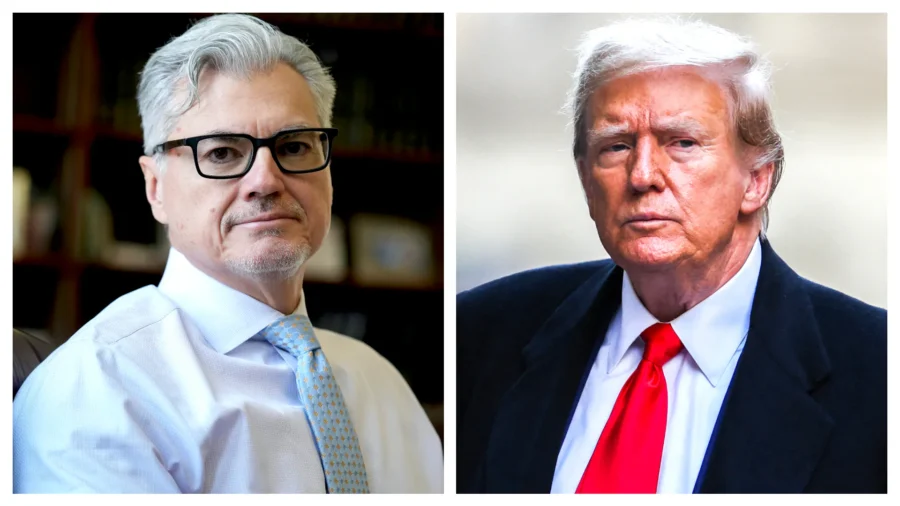The judge overseeing former President Donald Trump’s hush money case released a questionnaire for jury selection on Monday and stated that prospective jurors will not be asked about their voting preferences.
In a letter, New York Supreme Court Justice Juan Merchan said he would use a “broad and exhaustive” questionnaire, consisting of 42 questions, to select jurors for the trial. Jury selection will begin on April 15.
The judge stated there would be “no questions asking prospective jurors whom they voted for or intend to vote for, or whom they have made political contributions to.”
“Nor are jurors asked about the specific political party registration, though the answer to that question may be gleaned from the responses to the other questions,” he added.
“Counsel is forewarned not to seek to expand the degree of intrusion beyond what is relevant and has already been approved,” the judge added.
Justice Merchan also rejected President Trump’s attorneys’ argument that asking about political affiliation is relevant to the jury selection process. He said that “the purpose of jury selection is not to determine whether a prospective juror does or does not like one of the parties.”
“Such questions are irrelevant because they do not go to the issue of the prospective juror’s qualifications,” the judge wrote.
“The ultimate issue is whether the prospective juror can ensure us that they will set aside any personal feelings or biases and render a decision that is based on the evidence and the law,” he added.
Among the 42 questions, two of them inquire whether prospective jurors have ever attended a rally or campaign event for President Trump or events organized for “any anti-Trump group or organization.”
The questionnaire also asks jurors if they have any feelings or opinions about how President Trump is being treated in the case, and if they have “strong opinions” or “held beliefs” about the former president.
Potential jurors will be asked if they “visit, read or watch” certain news organizations, including The New York Times, The Washington Post, Fox News, USA Today, and The Wall Street Journal, as well as social media platforms like TikTok and President Trump’s Truth Social.
They will also be asked if they support or belong to the QAnon Movement, a far-right conspiracy theory-fueled movement, or militia-like groups such as the Oath Keepers and the Boogaloo movement, among others.
The questionnaire also asks jurors if they belong to “Antifa,” and if they have listened to podcasts by President Trump’s ex-lawyer Michael Cohen, or Mark Pomerantz, a former Manhattan prosecutor who once led a probe into President Trump.
Trump’s Request to Delay Trial Was Denied
This came shortly after a New York appeals court denied President Trump’s request to delay the trial. His attorneys had argued that the trial should be postponed while they sought a change of venue.
Manhattan District Attorney Alvin Bragg is prosecuting President Trump on 34 counts of falsifying business records related to an alleged “hush money” payment scheme to influence the 2016 elections.
The defense has filed a flurry of motions and pre-motion letters in the last days leading up to the trial, protesting a gag order and its expansion, citing changed circumstances that warrant the judge’s removal, and arguing a presidential immunity defense that will soon be reviewed by the U.S. Supreme Court.
Defense lawyers have also argued against proceeding with the case under the current heightened media coverage that the first-ever criminal trial of a former U.S. president is attracting. They submitted survey results that show a high awareness of the trial among New York County residents and, based on these results, they argue that it is impossible to seat an impartial jury in New York.
Several of these motions had already been rejected by Justice Merchan. On April 3, he rejected a motion to postpone the trial until the Supreme Court has reviewed the presidential immunity defense and to hold an evidentiary hearing about the high court’s decision.
Catherine Yang and the Associated Press contributed to this report.
From The Epoch Times

